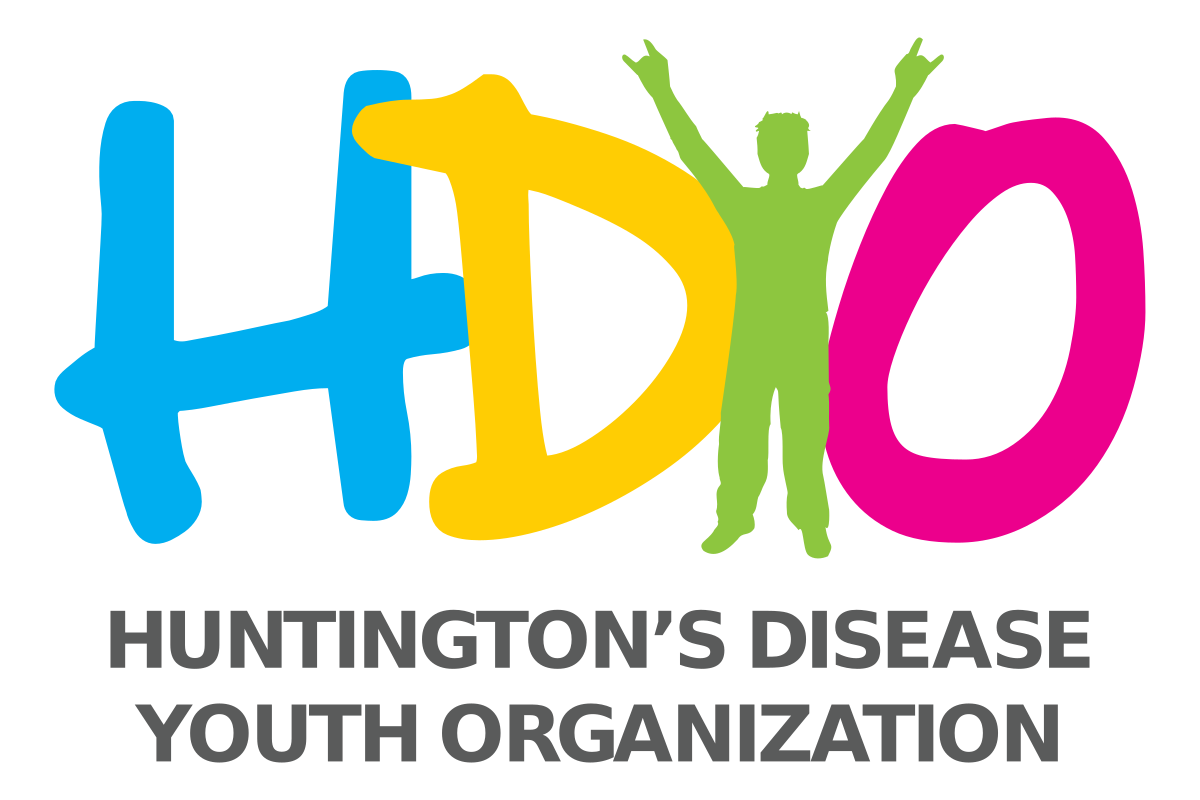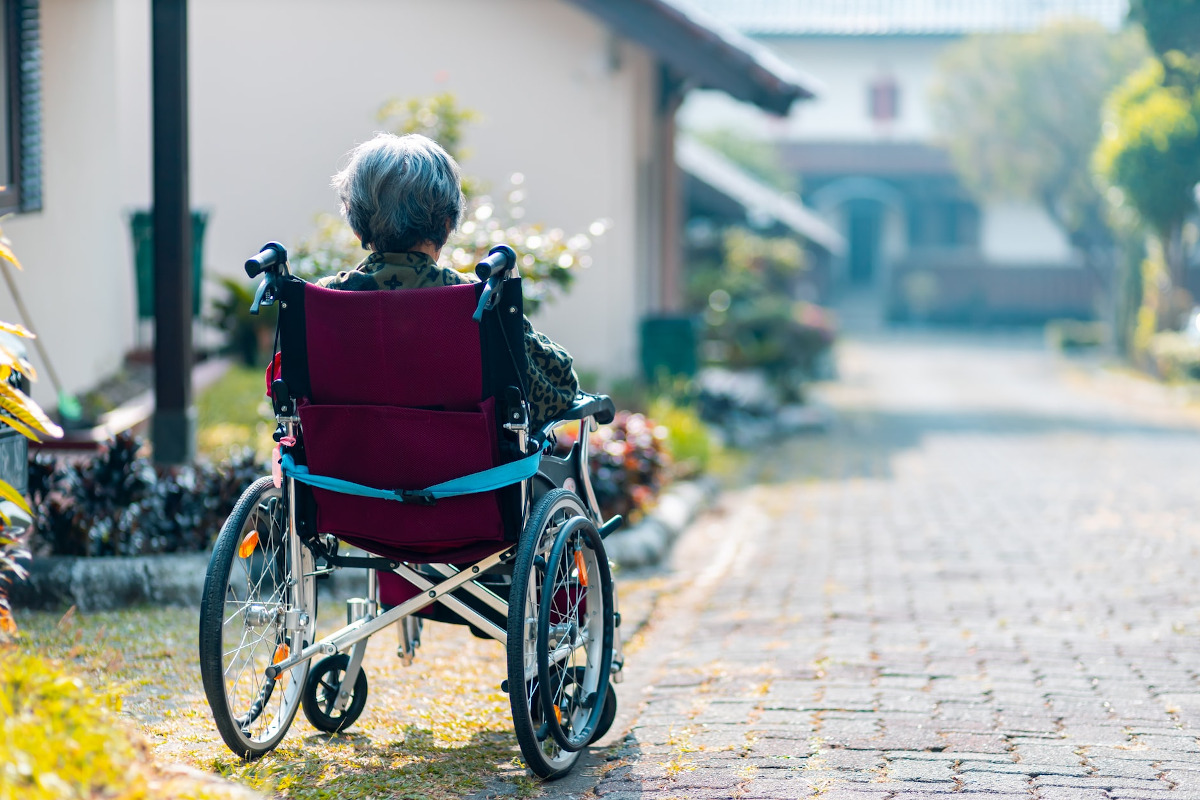How Does HD Affect People?
February 18, 2022

HDYO has more information about HD available for young people, parents and professionals on our site:
www.hdyo.org
Updated in 2025 by Education and Research Committees
If you have read the 'What is Huntington's disease?' section, you will know that the symptoms experienced by people with Huntington's disease can be divided into three main types: involuntary movements, cognitive problems and behavioural symptoms. This section will look into what type of symptoms fall under these three categories and how they affect a person with Huntington's disease.
Before we start it is really important to realise that a person with Huntington's disease may not develop ALL the symptoms mentioned in this section. Most people only get some, and each individual experiences different symptoms. The symptoms also change as time goes on.
What do the three categories mean?
Huntington's disease affects people in three main ways (involuntary movements, cognitive problems and behavioural symptoms), but what do they all mean?
Movement symptoms: The first category, movement problems, means that a person has less/no control over some of the movements they make. Sometimes people with HD will find it hard to keep still because of 'involuntary' or unwanted dance like movements or “chorea”. Many people will have problems with initiating movements, as well.
Cognitive problems: The word 'cognitive' means a person's thinking abilities. People with Huntington's disease may find it hard to think clearly, answer questions or concentrate. This is because of the cognitive effects of the disease.
Psychiatric symptoms (personality changes): The third category, behavioral symptoms, means that a person's behavior may change when they have HD. For example, someone with the disease may experience anxiety or depression. At times it can seem like someone's personality has even changed.
The three categories
People with HD usually develop symptoms from these three categories. They can happen in any particular order, and people don't necessarily have to be impacted by all three categories. For example, someone may get psychiatric symptoms first, and then develop movement symptoms. Another person may have cognitive symptoms first, then involuntary movement symptoms, but never develop psychiatric symptoms. It is quite unpredictable. Now, let's look at these categories individually and check out some of the symptoms from each.
Movement Symptoms
Often a person with HD will have involuntary movements where they find it hard to keep still. This is also known as 'chorea', which is the Greek word for dance. In the old days, people used to call the disease 'Huntington's chorea' because the movements were so obvious. It was renamed to remind people that there's more to the disease than movement problems. Medical professionals also tend to use the term 'motor symptoms', which is another term for problems with a person's movements.

The involuntary movements caused by Huntington's disease can affect people in various ways throughout the progression of the condition. Usually people appear to be restless, or fidgety in the beginning. Then, gradually these fidgets turn into more obvious involuntary movements which can result in a whole host of situations when out in public with the person affected by HD.
Surprisingly, many people with HD aren't aware that the involuntary movements are happening, or do not notice them as much as other people do. That's because HD can affect people's awareness of their own bodies. This can be difficult, because it can cause people not to take enough care when walking. On the other hand, it can also mean that people with HD often feel better than they appear based on their symptoms.
There's another side to movement problems in HD. It's less obvious than unwanted movements, but can cause big problems. Doctors call it 'loss of voluntary movement control.’ It means that the movements a person wants to make become more difficult. Walking can get slow, balance becomes less reliable and fine motor movements like fastening buttons or writing can become uncoordinated. The problems caused by loss of movement control can be more severe than the unwanted extra movements.
'My dad would cause chaos when out food shopping. There was never a week that went by without some sort of incident, usually involving him knocking over a beautiful display some poor staff member had spent hours putting together!' Katy
As Katy highlights, keeping your balance when you have movement problems is not easy, and it only becomes more challenging as time goes on. The same goes for walking in general: people tend to get slower and slower, with increasing involuntary movements.
Driving
At some point people with HD usually have to stop driving as well. This is because of involuntary movements and changes to the thinking processes. This can be a very difficult decision since the person with HD may not think that they have a problem with driving. It is important to voice any concerns about someone's driving though as it can be quite dangerous.
Speaking
Because speaking relies on the brain being able to control the lips, tongue and mouth, speech can also become difficult for people with HD. Often the affected person’s speech will begin to slur and some people may have trouble understanding what they are saying. Speech generally deteriorates as the disease progresses and some people lose their speech completely as a result of the disease. It is important to remember that people with HD can recognize loved ones and usually understand what's going on and what's being said, even if they have trouble speaking.
'Mum lost her speech, I forget when it happened, and it seemed to gradually fade away. First she was slurring her words, and then she was down to sentences, keywords and eventually no words. But we still communicate with her as best we can, we use cards with words on them and she points to tell us what she wants.' Anthony
Swallowing, burnt calories and weight loss
People with HD need to eat more calories than unaffected individuals. We don't fully understand the reasoning behind this. It may be caused, in part, by involuntary movements, which make people burn a lot of calories each day. The fact that people with HD are less efficient at using energy may contribute to this, as well.
Swallowing can also be affected in people with HD. This can make it difficult for people affected by HD to meet their caloric needs. As a result, weight loss can become problematic for many people with HD.
Some affected people may need to eat high-calorie foods or supplements, or have a feeding tube inserted, to make sure they are getting enough calories each day.
Cognitive symptoms
The second category is cognitive problems. Cognitive means anything to do with 'intellectual activity' or our process of thinking. Cognition relates to perceiving, planning, remembering and reasoning. Basically, anything to do with how we interact and make sense of the world around us.

Decisions, organisation and concentration...
As the disease progresses, people with HD sometimes have difficulty organizing things or making decisions. That's because the ability to concentrate becomes more difficult as a result of cognitive difficulties. A little bit of patience from people around them, including caregivers or family members, and extra help explaining the options to arrive at a decision can go a long way.
Memory
Memory can also be affected by the cognitive changes caused by the disease, although often it is not memory itself that is affected but the ability to recall something (which is explained in our what does it feel like to have Huntington's disease section).
'My mum was unable to speak and communicating in general became almost impossible. I would often wonder if she knew who I was anymore, she would look at me but there was never really any emotion or expression, it was hard. I felt she didn't remember me at all.' Anthony
Unlike Alzheimer's disease, those with HD do recognize people and places. This is an important point to remember because some people may start to question it at times, as the disease progresses.
Communicating: Wait for an answer...
Communicating, as was highlighted already, can become an issue and not just because of the person having difficulty talking. There is also an issue when the person can talk, but takes longer to answer because the person with HD is unable to think of a reply right away. A neat trick to get past this is when you ask a question, wait for an answer to your question without interrupting (otherwise you will disrupt their concentration on answering your original question), and after a while the person with HD will usually respond to your question. It just takes people with HD longer to process what was asked and what answer to give. That tip might not work for everyone, but it has shown to be quite effective.
Psychiatric symptoms
The third and final category is the behavioral aspect of HD. The condition can cause people to behave unusually and do or say things they don't mean to (without thinking). The behavioral changes do not happen to all people who have the condition, but they can be difficult changes to cope with, because it can be hard to remember that these actions or words are a result of the disease, rather than the person .
Depression

Depression is also very common in HD. Researchers know that depression is actually a symptom of the disease, rather than people just feeling sad. However, depression can often be treated and when someone's depressed, it's important that people around them try to keep them involved in activities. If you think someone with HD is depressed,encourage them to see a doctor.
Apathy
People can also suffer from apathy, which means that they have difficulty motivating themselves to do anything. This can be a difficult problem because it is very important that people with HD exercise and be active as it can help delay symptoms. However, often if prompted and encouraged, they will be more successfully motivated to do things. Apathy can be difficult to treat, but getting a regular routine of activities can often help.
Denial
Denial is also a behavioural symptom of Huntington's disease. People may even deny that they have any symptoms at all, which can obviously be quite a problem when trying to help the person. Your Huntington's disease clinic, local HDA, or community care team will be able to offer advice on coping with the problems caused by denial.
'My mum denies that she has Huntington's disease, or any other condition for that matter. It doesn't make my life easy when I want her to help me fill out forms for her care plan!' Sophie
Although this is very frustrating it is important to remember that this is often due to the cognitive changes that are taking place in the brain, and the person does not have insight into the difficulties they are having.
Aggression
Perhaps one of the more difficult symptoms to deal with can be the aggression caused by the disease. Some people with HD may get angry a lot, be irritable, get annoyed and can generally be difficult to reason with. This is all a part of the behavioral aspect of the disease. Try to be understanding when somebody is behaving this way towards you. Remember it's not the fault of the person, and learn to back down from the arguments and be patient. Make a cup of tea, leave the room or go for a walk. There are also medications which can often be effective to alleviate aggression.
Repetitiveness
People with HD can also become 'stuck' on particular ideas or thoughts and repeat them over and over again (similar to Obsessive-Compulsive Disorder). This is why people with the condition get very much into routines and find it difficult to adjust if their routine is changed.
'My dad got fixated on washing his hands all the time. He would also advise us to wash ours regularly as well! It was becoming quite ridiculous and fortunately a health care professional was able to help him get rid of this fixation, otherwise we would all still be washing our hands repeatedly right now!' Jason
Everyone is different

Although HD can affect movements, cognitive function and behavior, each person is impacted differently and it is impossible to predict how each person will be affected. In fact, two affected people from the same family may have completely different symptoms of the disease.
Remember, some symptoms may go away on their own or be well-managed with medications. Others may become more severe as the disease progresses. The key is to seek help from a professional if a symptom is causing problems.
Progression and stages
Although symptoms of HD vary from person to person, even within the same family, the progression of the disease can be roughly divided into three stages: Early stage, middle stage and late stage. In early stage disease, a person has difficulties but can usually still look after themselves and walk. They may also be able to work and drive. In the middle stage, people usually need to use a frame or wheelchair to get around, and may need help at home. In the advanced stage, there are serious problems with getting around and people need a lot of help, often needing to be looked after in most or all of their day-to-day activities. As the disease progresses through these stages, the disease generally becomes more severe, and presents new challenges. Professionals with experience in managing HD can usually come up with useful suggestions and help at all stages of the disease.
Treatments
There is no cure or effective treatment which can slow down the progression of HD yet. However, there are treatments that can help control many of the symptoms of HD, and there is a lot of research being done at the moment - so there is great hope for the future! Visit our research section to find out more about advances in research.
Contact us
, Huntington's disease has an impact on people in many different ways, and it is impossible to predict how each individual with the disease will be affected. If you have any more questions about how Huntington's disease affects people you can contact HDYO directly or speak to your local HDA.



